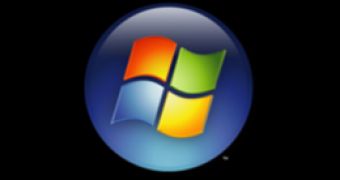Three days before Windows is scheduled for commercial availability, the Microsoft's security solutions designed to offer support for the operating system have been cataloged as ineffective, slow and weak. Following in the footsteps of Natalya Kaspersky, CEO of Kaspersky Lab, that has also slandered Microsoft's security products, Webroot Software, Inc. claims that it has unveiled "evidence of potentially ineffective blocking capabilities in Windows Defender, slow definition updates, and weak anti-virus capabilities in the default anti-spyware and anti-virus components of Microsoft's Windows Vista operating system and Live OneCare suite."
Webroot's Threat Research team tested Windows Defender, the built in anti-spyware solution in Windows Vista and found that it failed to block 84% of the testing sample-set malicious code. According to Webroot's Threat Research team, the sample-set contained 15 variants of common spyware and malware threats.
"We applaud Microsoft for the substantive improvements and exciting new features offered in Windows Vista. The various built-in applications, networking enhancements, and improved graphics support make for an impressive product," said Gerhard Eschelbeck, CTO and SVP of engineering for Webroot Software. "However, we want to make sure that users understand the Vista operating system's limitations, and caution them that Microsoft's default malware blocking application and anti-virus programs may not fully protect them. With the continued increase in the ingenuity and tenacity of cyber criminals and malware publishers, it is crucial for users to additionally deploy a proven computer security solution that provides real-time protection against all forms of spyware and viruses."
Webroot also criticized the slow definition update rate that adds up to the deficiencies in Windows Vista. Webroot's Threat Research Team stated that the attack window left open by the fact that Microsoft issues spyware definition updates for Windows Defender every week to ten days, is a vulnerability in itself.
"We understand that Microsoft's main goal is to provide a new operating system that generally improves users' computing environments, and we genuinely feel that Windows Vista accomplishes this," added Eschelbeck. "However, as a company that serves on the front lines in the battle against spyware and cyber crime, we feel strongly that in order to provide the best protection for Internet users, security must be your top - and only - priority. We hope that by providing information on possible security weaknesses in the Windows Vista OS, users will be able to make informed decisions about their computing security needs."

 14 DAY TRIAL //
14 DAY TRIAL //